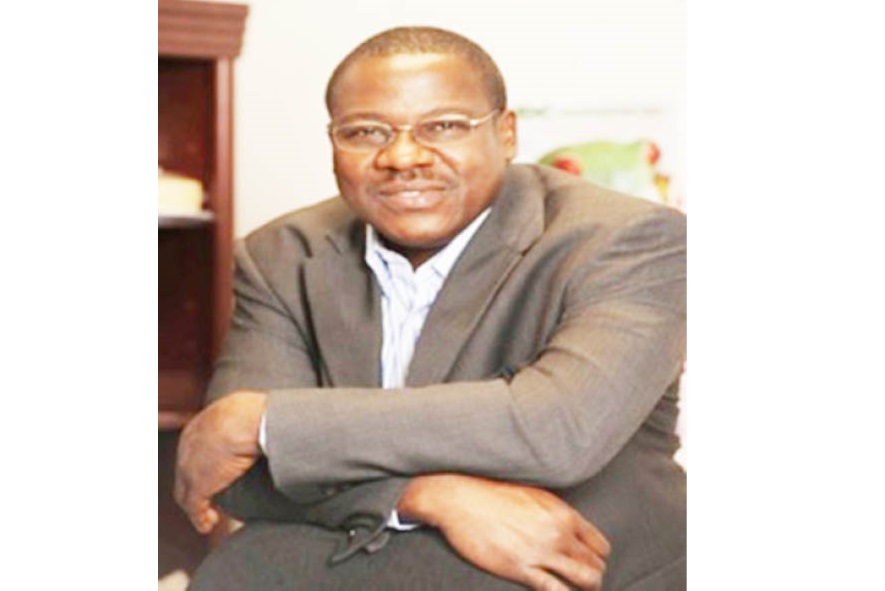‘TETFUND will improve R&D activities in higher institutions’
Professor Ibrahim Katampe is the Director for Innovation and Technology Incubation, Center of Excellence in Emerging Technologies (CEET), Central State University, USA and vice chairman of Nigeria’s Tertiary Education Trust Fund’s (TETFUND) committee on Research and Development (R&D). Prof Katampe, from the Federal Capital Territory (FCT), founded Iyatech Laboratories, USA, an innovative R&D company focused […]

Professor Ibrahim Katampe is the Director for Innovation and Technology Incubation, Center of Excellence in Emerging Technologies (CEET), Central State University, USA and vice chairman of Nigeria’s Tertiary Education Trust Fund’s (TETFUND) committee on Research and Development (R&D).
Prof Katampe, from the Federal Capital Territory (FCT), founded Iyatech Laboratories, USA, an innovative R&D company focused on the development and commercialization of eco-chemical technologies. In this interview, he said TETFUND will improve the effectiveness of R&D in tertiary institutions.
You were named as vice chairman of TETFUND’s committee on R&D project. What are the objectives of the committee?
Recently TETFUND’s Executive Secretary, Professor Suleiman Bogoro, came up with the concept of R&D, being the pillar of any developing country. He formed an ad hoc committee to work with his internal select management team to come up with a framework for the institutionalization of R&D and innovation in higher institutions. The committee will be the working group that will put the framework together on behalf of TETFUND.
The terms of reference are basically to sensitize and recalibrate the thinking of Nigerians especially that of TETFUND concerning the importance of research and product development. We are to develop a mechanism on how to institutionalize this in tertiary educational institutions. The recipients or beneficiaries of most TETFUND funds are to be involved in the project, because once that is achieved it will lead to economic and industrial growth in line with the vision of the president.
People will speculate that by promoting R&D, TETFUND may perhaps deviate from its initial responsibility of improving infrastructure in higher institutions.
TETFUND’s mandate as established by the TETFUND Act of 2001 has different sections. One of its mandates included infrastructural development, but its core mandate is to support research and educational activities. TETFUND’s mandate also includes, book development, libraries, journals and publications, because before you publish, you have to do research, which is why it is important that TETFUND now ensures that the type of research they fund are in line with the country’s priority needs. This will enable them solve economic problems and other challenges bedeviling the system.
This is an ad hoc committee drafted to put the framework together, work with TETFUND management to institutionalize the idea within the TETFUND environment and hand it over to the executive secretary who will then present it to other organizations for their buy in.
The executive secretary said he had to consult NUC first to see its needs areas. He is also making consultations with industries to spread the word. He is already in discussions with industries, universities and the government. These three entities will form the triple helix. It is a whole paradigm shift, so our work will be done when everybody wakes up every morning knowing why R&D is necessary in the fabric of our nation.
How long will it take to complete your assignment?
As a member of the committee, we know the world is a global village; you can be anywhere and still do what you need to do. That is why there are two co-chairs, who can mine data anywhere in the world. So even though I might not be physically present sometimes, it does not mean that the work will stop.
We are a cohesive team; we have a platform meant for sharing ideas, like Facebook, Net groups, LinkedIn, where at any given time we are still working. We do not have to always meet physically, but of course sometimes we do. We are a tripod, the co-chairs, and I, and we support the team of technocrats that are on the ground.
In the end, what does this country stand to gain from your work?
We are a third world country and we desire to do our own things, but without innovations we cannot succeed. The biggest issue is working to change people’s mindset, leading change, and having a paradigm shift.
If you recall, we use to have landline phones but now everybody has mobile phones, all with camera and a lot of gadgets. These are all innovations, once that succeeds, universities can generate revenue. But you may ask how will they generate revenue? This will be due to the partnership with the private sectors; they will bring innovations to the private sectors. The second point is that the private sectors would be sustainable because constantly they will have new products, innovations, market strategies which will come from the academia, the centre of knowledge and innovations.
When you have this mutual relationship, industries will benefit and if industries benefit, the workforce especially our youths will be employed, and if our youths are employed, it solves our security issues and stops idleness.
So, the outcome is enormous because of the paradigm shift, there will be boom in the economy, people will be less dependent on government doing everything, that is why it is called a sustainable framework.
